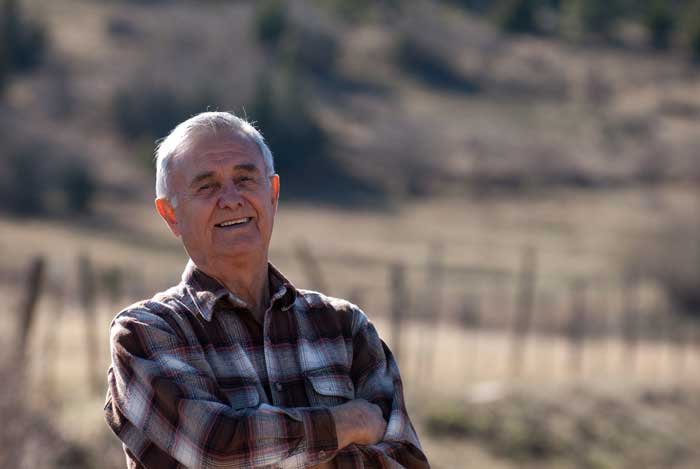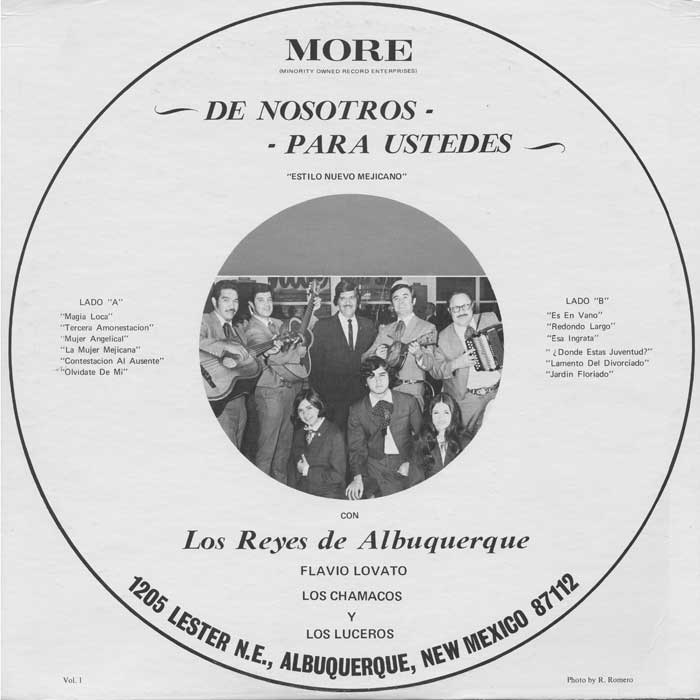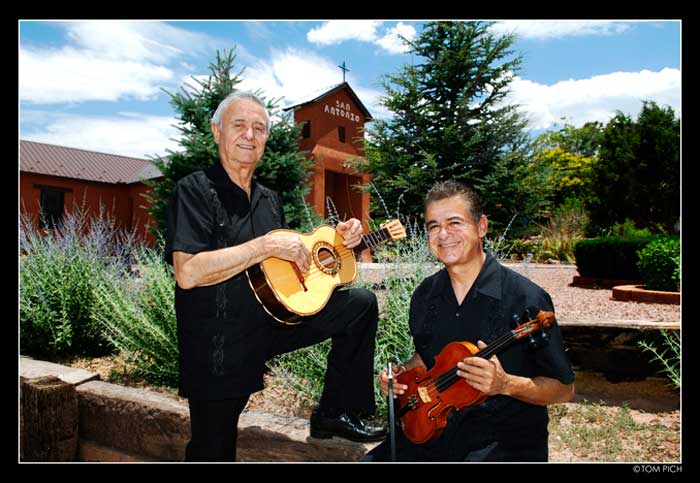Adiós, Roberto Martínez, el Rey de Alburquerque

In Nuevo México, we all feel a part of the extended musical family of don Roberto Martínez, and we all mourn his January 3, 2013 passing in song and in remembrance. On his last Farewell Concert CD, his group Los Reyes de Alburquerque, and Tony Ordaz captured the joy of his musical family in the “Corrido de Roberto”:
Cuando lo vemos tocar,
rodeado de su familia,
con sus hijos y sus nietos,
está lleno de alegría.

When we see him play,
surrounded by his family,
with his children and grand children,
he is full of joy.
More than his poetry, more than the music itself, Roberto’s talent was to make us feel part of something larger than ourselves, a culture of struggle, of inclusion, and of celebration. He once told me when he first saw Mariachis in classic Mexican films as a kid growing up in the Mora valley, he was as excited by the music as he was by their uniforms and spirit. “Their cultural pride is militant, they are truly musical warriors,” he said. Don Roberto put on the uniform as a young man and started performing at a time in New Mexico when speaking Spanish in public was considered impolite and identification with Mexican culture was avoided. Much has changed in the half-century that followed and don Roberto was one of the most lyrical agents of change.
Growing up in Alburquerque in the 1950s and 60s, all we wanted was rock ‘n roll in English and cumbias in Spanish. Tradition belonged to the fading worlds of our grandparents. We had heard of corrido ballads, but they were about celluloid movie heroes. Then came Civil Rights, Viet Nam, the Draft, and the Land Grant Movement in New Mexico. The ten o’clock news in June 1967 showed U.S. tanks and troops were not only rounding up peasants in Southeast Asia but villagers in our own mountain towns in New Mexico. We were electrified to hear Martínez’s “Corrido de Río Arriba” on the local talent show on radio well before it was recorded. It documented our regional struggle with much more eloquence and concern than the daily newspapers. Many other corrido ballads he composed followed. We were moved by the lyrics, and realized the power of cultural resistance.

I included the corridos of Roberto Martínez in the Chicano literature courses I taught as a graduate student in Southern California and later as a professor in Oregon in the 1970s. When I came back home to Alburquerque, I sought him out and found a sincere and genuine poet of the people, as generous as he was unassuming. I have been fan, friend, and scholar ever since. In the Corridos sin Fronteras / Ballads without Borders Smithsonian exhibit, I made sure that he joined fellow composers in the “Corridista Hall of Fame.” Over the years, Los Reyes de Alburquerque has performed for many graduations at the University of New Mexico, serenading graduating classes with ever increasing numbers of Hispanic students.
As soon as don Roberto learned of his terminal illness, he embarked on a two-year series of farewell concerts and workshops. He was fortunate enough to witness the transmission of his legacy to the next generations. He brought the Mariachi to New Mexico and adapted it to our regional soundscape. He and his sons also taught us our own musical traditions that we had nearly forgotten about. His late daughter Debbie “La Chicanita,” rising musical star of the 1980s, made us proud to be Chicanos. At his Rosary, the Penitente brothers sang the ancient alabado hymns that connect us to our deepest Spanish Mexican heritage. At his funeral, a rousing Mariachi mass was followed by a favorite hymn I heard him sing years ago, “Un día a la vez,” the Spanish rendition of the protestant gospel hit “One Day at a Time.” In life, in death, music transforms and unites us all.
Dr. Enrique Lamadrid is Chair of the Department of Spanish & Portuguese at the University of New Mexico. For more information, read his Smithsonian Folkways Magazine (Winter 2010) article, “El Rey de Alburquerque: Roberto Martínez and his New Mexican Mariachi: A Transnational Legacy” and watch “Los Reyes de Alburquerque,” a Public Radio and Online Documentary produced by KUNM in 2010.

